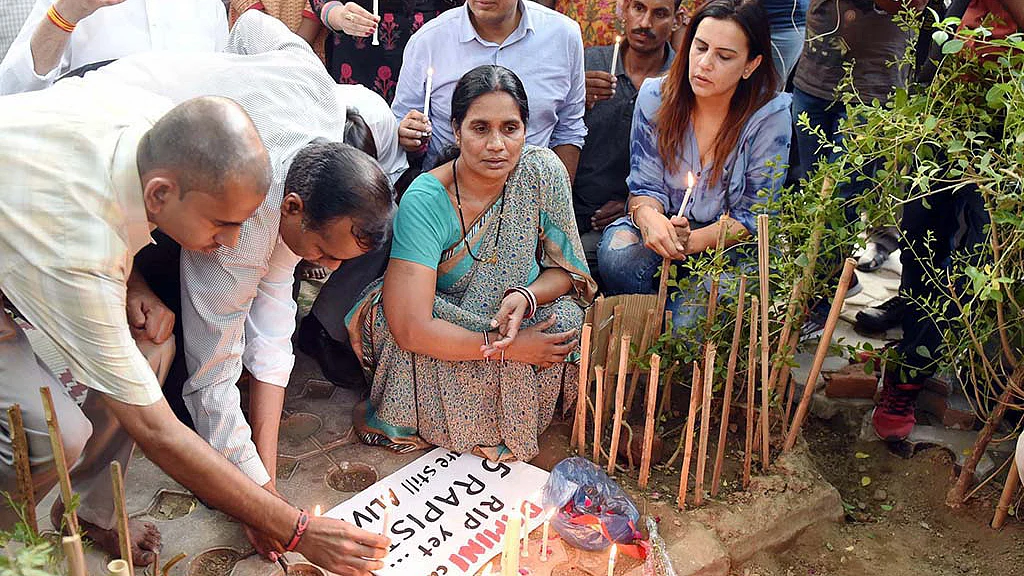Nirbhaya case: SC confirms death penalty for four convicts
The apex court said the convicts had treated the victim as an object of enjoyment, with the single purpose of ravishing her

The Supreme Court on Friday confirmed the death sentence awarded to the four convicts in the December 16, 2012, gang rape and murder case, saying it had sent a “tsunami of shock” all over and was a “rarest of rare” case in which the most brutal, barbaric and diabolical attack was carried out on the 23-year-old woman.
The apex court said the convicts had treated the victim as an object of enjoyment, with the single purpose of ravishing her. A three-judge bench, through a unanimous verdict, upheld the Delhi High Court judgement which had concurred with the trial court decision.
Those who will face the gallows are Mukesh, 29, Pawan, 22, Vinay Sharma, 23, and Akshay Kumar Singh, 31.
One of the accused, Ram Singh, had allegedly committed suicide in Tihar Jail, while a convicted juvenile was sentenced three years of punishment in a reform home.
In its judgement, the bench noted every gory detail which the victim suffered at their hands, detailing that after she was gangraped, the convicts had inserted an iron rod into her private parts, threw her from the bus along with her friend and tried to run them over.
The court termed the incident as “most brutal, barbaric and diabolical attack” on the victim.
The judgement was prononuced by a bench comprising Justices Dipak Misra, R Banumathi and Ashok Bhushan which had reserved the verdict on March 27 after a marathon hearing.
Justice Misra wrote the judgement for himself and Justice Bhushan, while Justice Banumathi wrote a separate but concurring verdict. The apex court said the aggravating circumstances outweighed the mitigating circumstances such as the poor family background, young age of accused, good conduct in prison, marital status and children.
Justice Misra, who read the operative portion of the judgement, said the offence created a “tsunami of shock”.
The bench also said the nature and the manner of the crime had devastated social trust and it fell in the ‘rarest of rare’ category, warranting death penalty.
It said the victim’s dying declaration was consistent, which was proved beyond doubt and corroborated, even though the victim had made her dying declaration through gestures as she was in an extremely bad state.
Follow us on: Facebook, Twitter, Google News, Instagram
Join our official telegram channel (@nationalherald) and stay updated with the latest headlines
